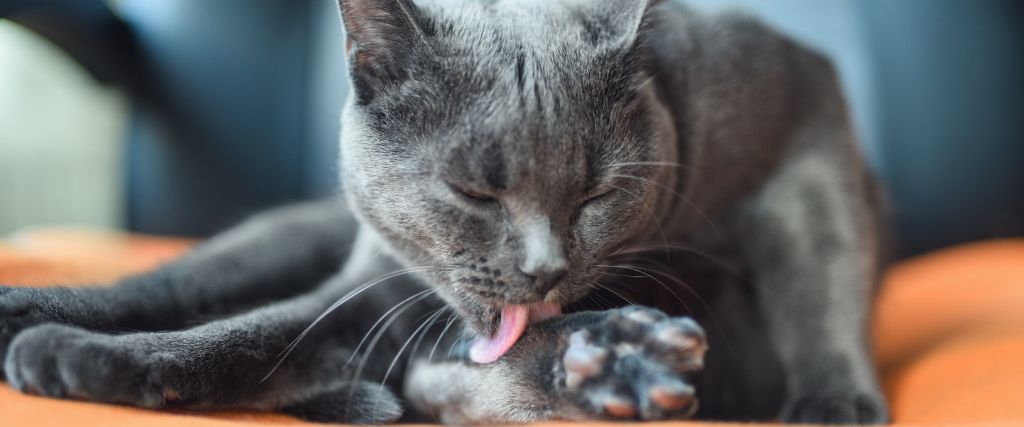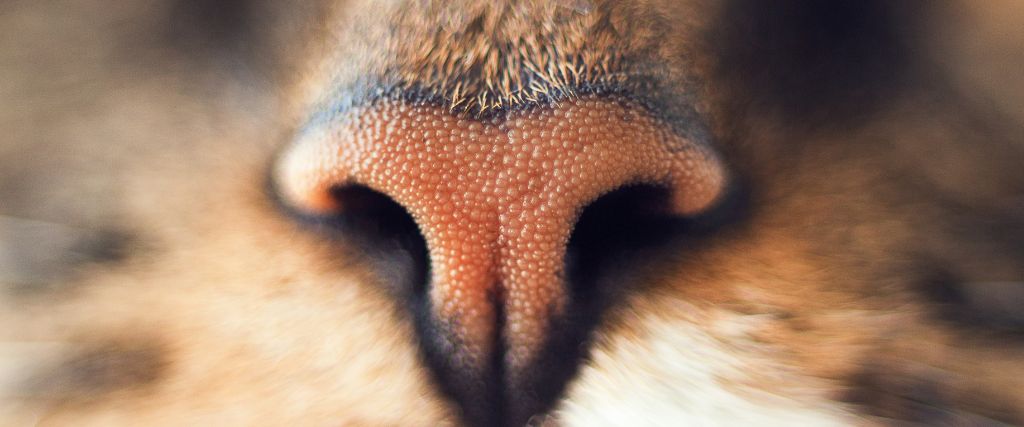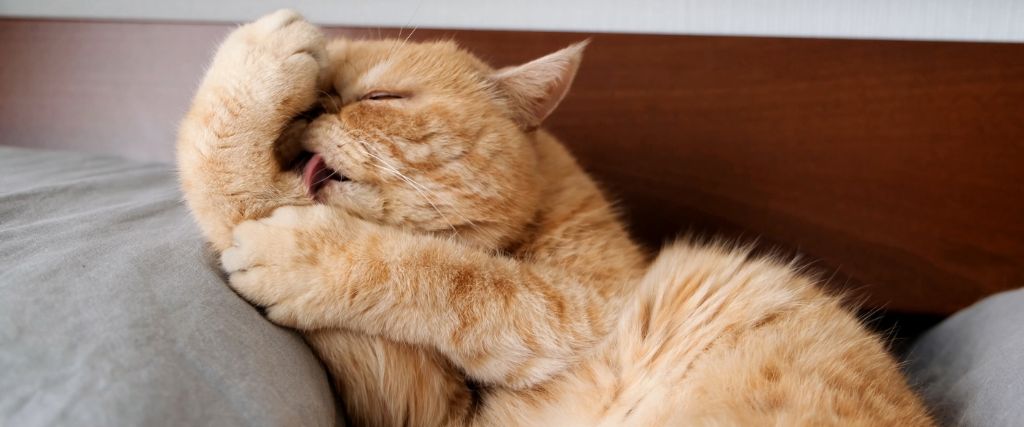Cats have long held a mystique that captivates our hearts. From their elegant grooming rituals to their curious sniffing explorations, felines possess an innate behavior that goes beyond mere instinct – a behavior deeply rooted in their biology and social interactions. In this blog, we delve into the significance of two seemingly simple actions for cats: licking and sniffing.
The Grooming Ritual: Licking
Licking is a quintessential behavior in the feline world. If you were to think of a cat just now, you may likely imagine them grooming themselves as it is perhaps one of the most well known feline behaviors.
 However, grooming isn't merely an act of vanity; it serves a myriad of essential purposes.
However, grooming isn't merely an act of vanity; it serves a myriad of essential purposes.
- Hygiene Maintenance: Cats are naturally clean animals. Licking serves as a way to remove dirt, debris, and excess oils from their fur, helping to maintain proper hygiene. By doing so, they also spread their natural scent, which plays a crucial role in territorial marking. Cats feel safest in an environment that smells like them hence why you might notice them licking or rubbing up against you!
- Temperature Regulation: A cat's tongue has tiny barbs that work like a comb, aiding in distributing oils throughout the fur. These oils not only keep the fur glossy but also provide a degree of waterproofing, helping cats to regulate their body temperature efficiently.
- Bonding and Social Interaction: Grooming isn't limited to self-care. Cats living in a group, like a family or a colony, engage in allogrooming, where they groom each other. This behavior not only strengthens social bonds within the group but also reinforces trust and cooperation (and it’s the only way for a cat to clean inside his/her ears).
- Stress Reduction: Licking also has a calming effect. Just as humans might find comfort in activities like yoga or running, cats soothe themselves by engaging in grooming. This repetitive, familiar behavior helps them alleviate stress and anxiety. This behavior can also be overdone if a cat is particularly stressed. Fur-mowing or psychogenic alopecia is an act of overgrooming to the point of fur loss and is often seen when cats are dealing with a significant amount of stress or anxiety.

Scent-Sational Sniffing
A cat's sense of smell is a powerful tool that governs many aspects of its life. Cats have an estimated 200 million scent receptors in their nasal cavity, compared to a human's mere 5 million.
Here's why sniffing is a vital part of a cat's daily routine:
- Navigational Aid: Cats rely heavily on their sense of smell to navigate their environment. Scent markers left behind through urine, scratching, and rubbing against objects help them establish territories and navigate their surroundings confidently.
- Emotional Signposts: Cats can detect emotional cues through scent. They can discern the scent of familiar and unfamiliar animals, as well as detect pheromones that convey information about mood and reproductive status. This aids in their social interactions and mating rituals.
- Stimulating the Mind: Sniffing is an integral part of a cat's play and exploration. When a cat sniffs a new object, it's not just engaging its olfactory sense; it's also exercising its cognitive abilities by processing information about the object's texture, temperature, and potential danger.
- Health Indicators: A cat's keen sense of smell extends to its own body as well. Changes in scent can indicate shifts in the cat's health or emotional state. Mothers identify their kittens by scent, and cats can detect the pheromones emitted by a stressed or sick fellow feline.
To Wrap It Up
In conclusion, the seemingly mundane behaviors of licking and sniffing hold a profound significance in a cat's world. Beyond the surface-level actions, these behaviors serve as the threads that weave the intricate tapestry of feline life. From maintaining hygiene to forming social bonds and interpreting the world around them, cats rely on their senses of taste and smell to navigate their lives with grace and purpose. As cat owners, understanding and appreciating these behaviors can help deepen our connection with these fascinating creatures.


